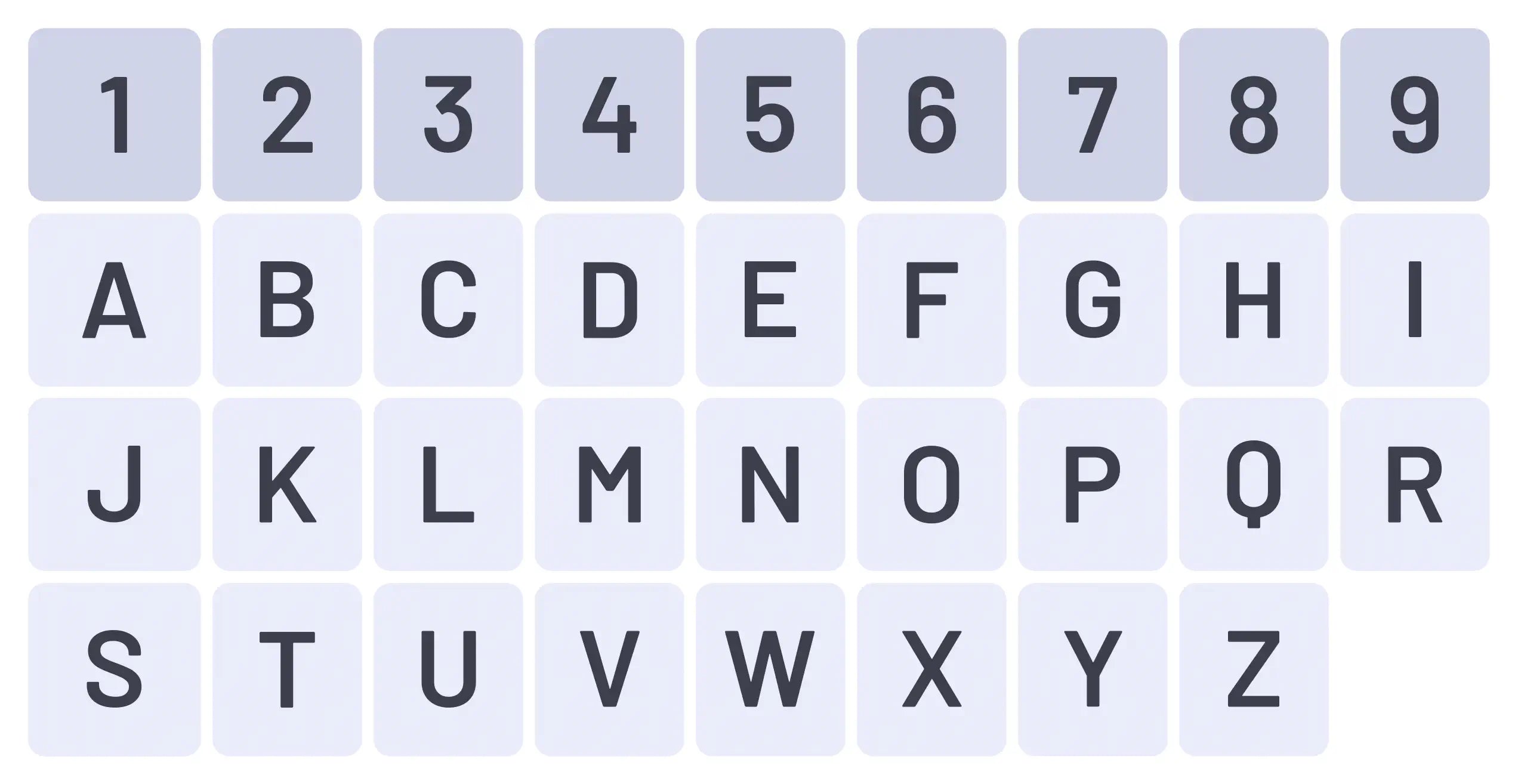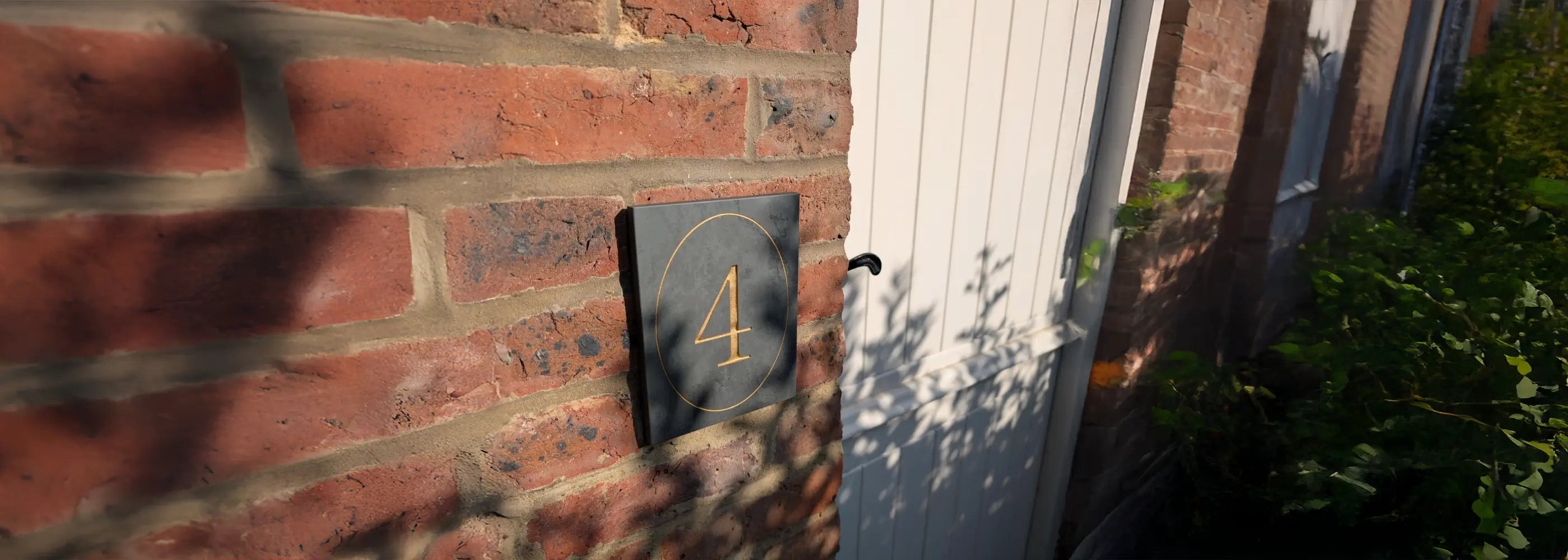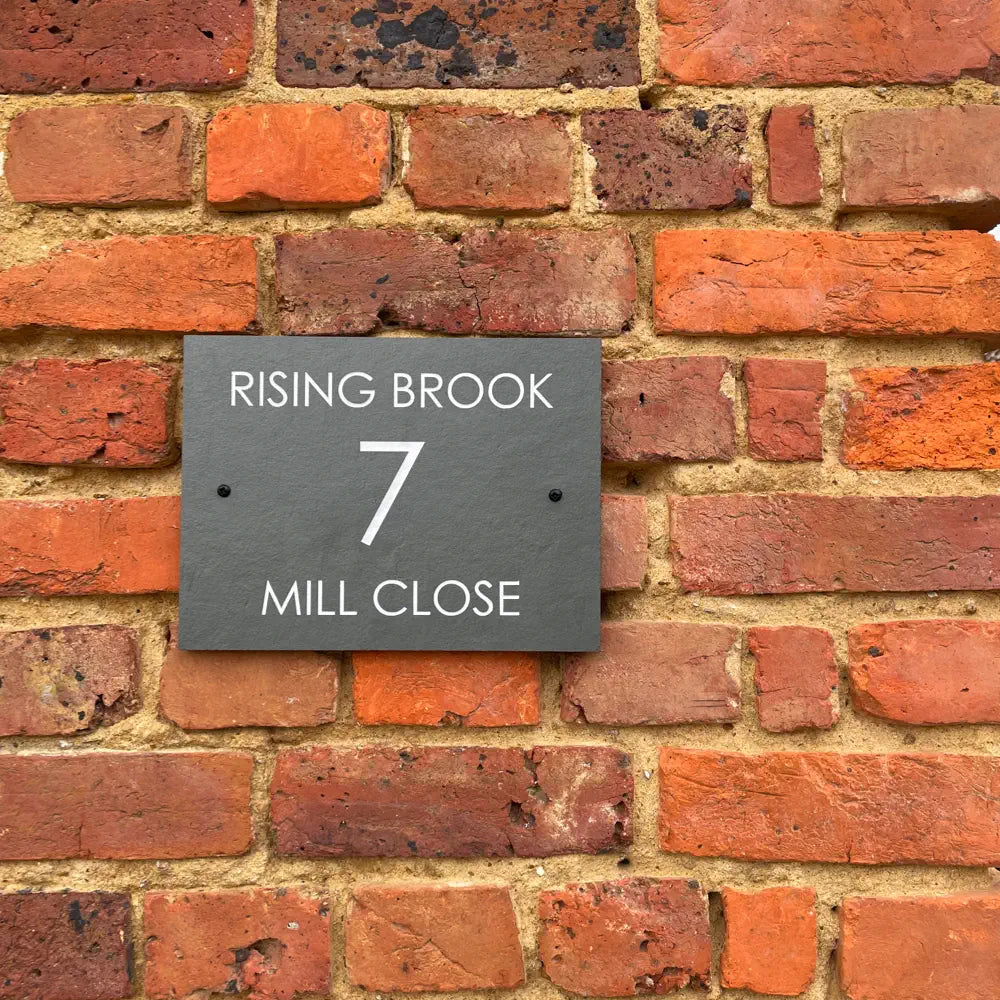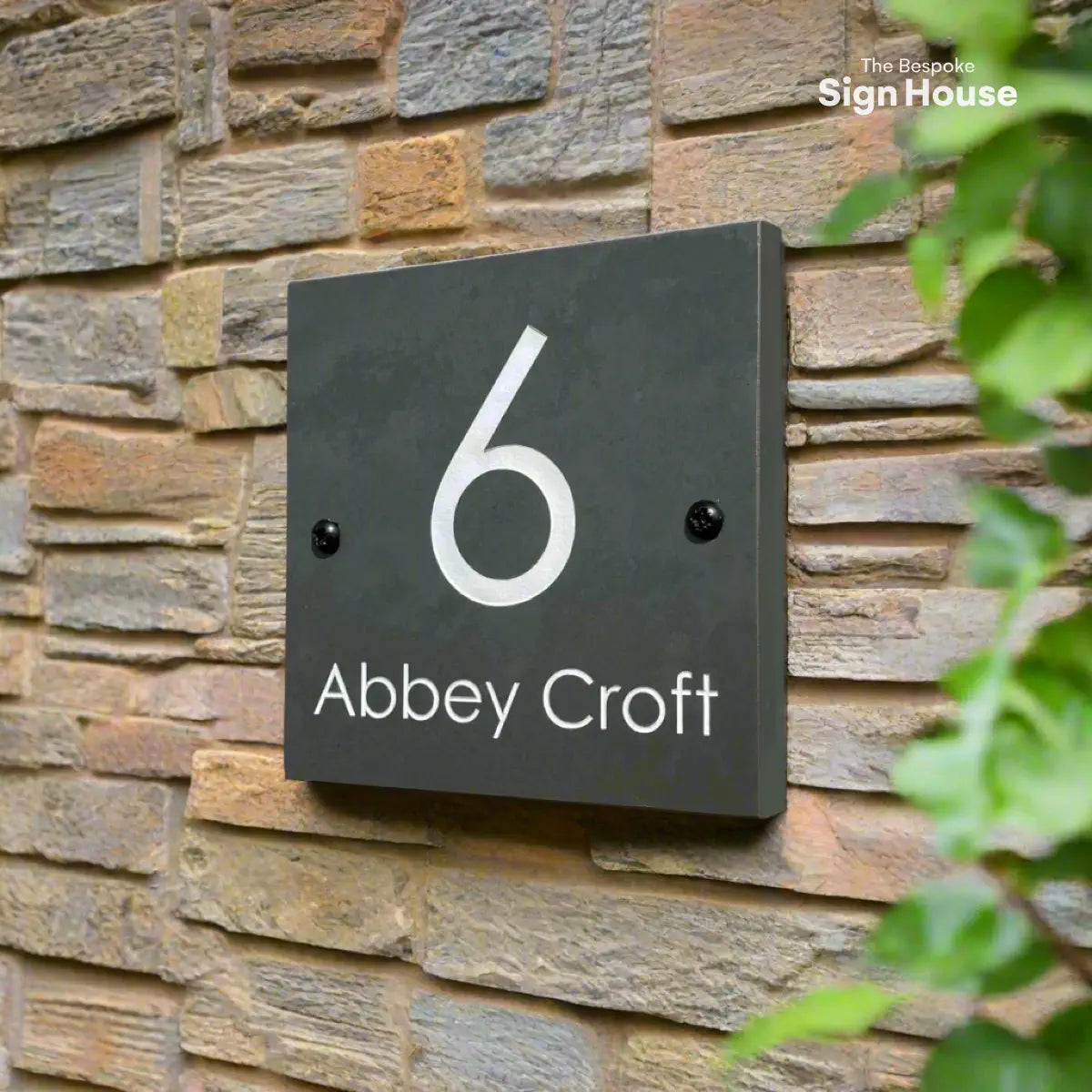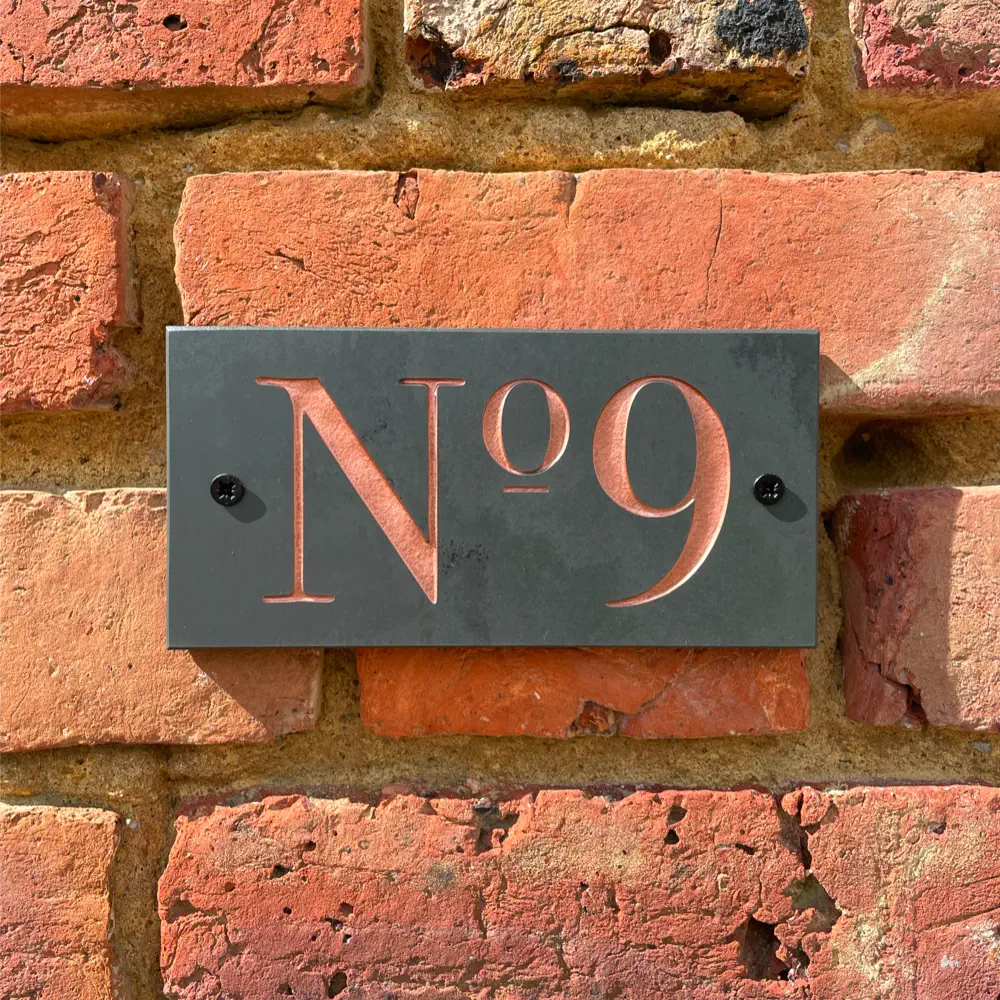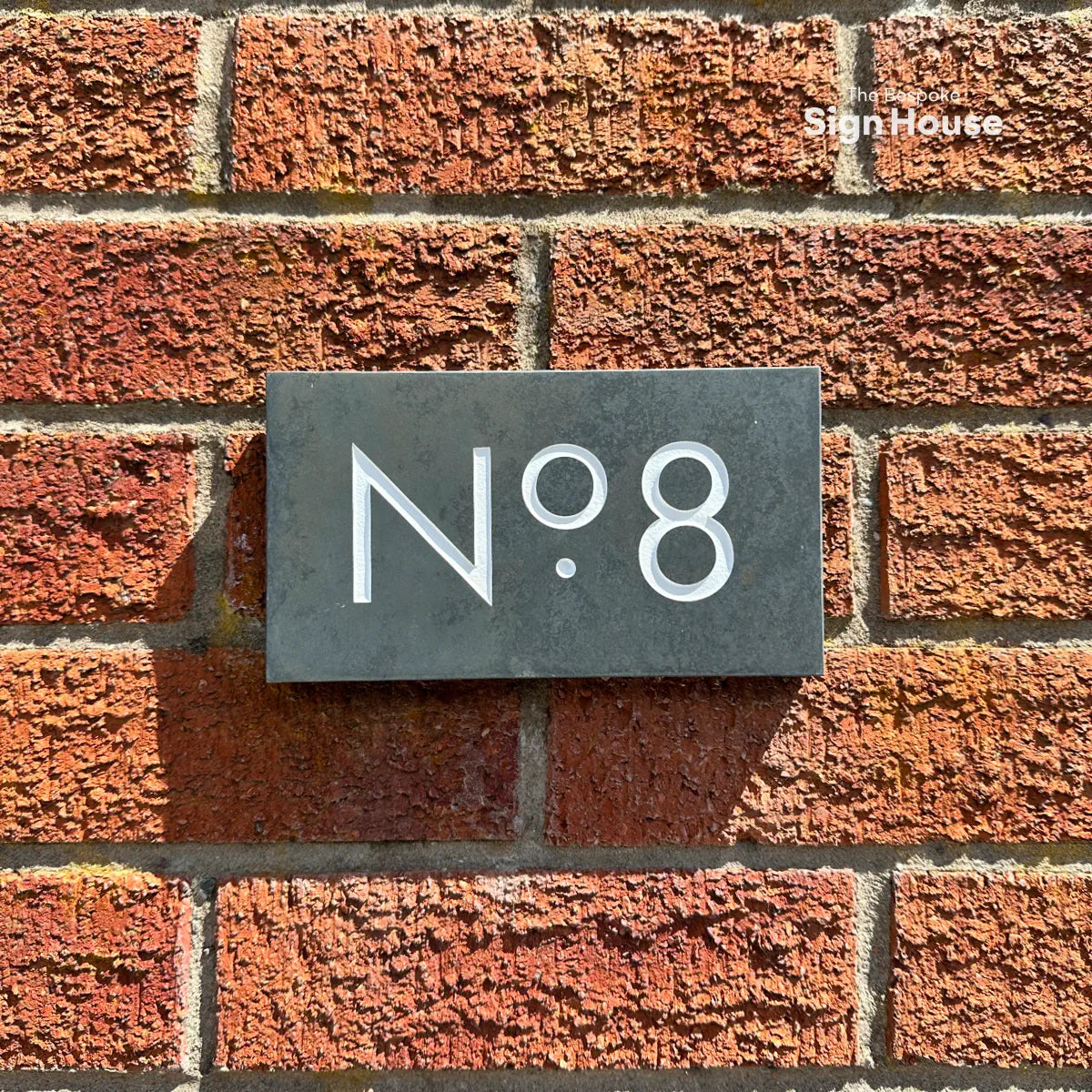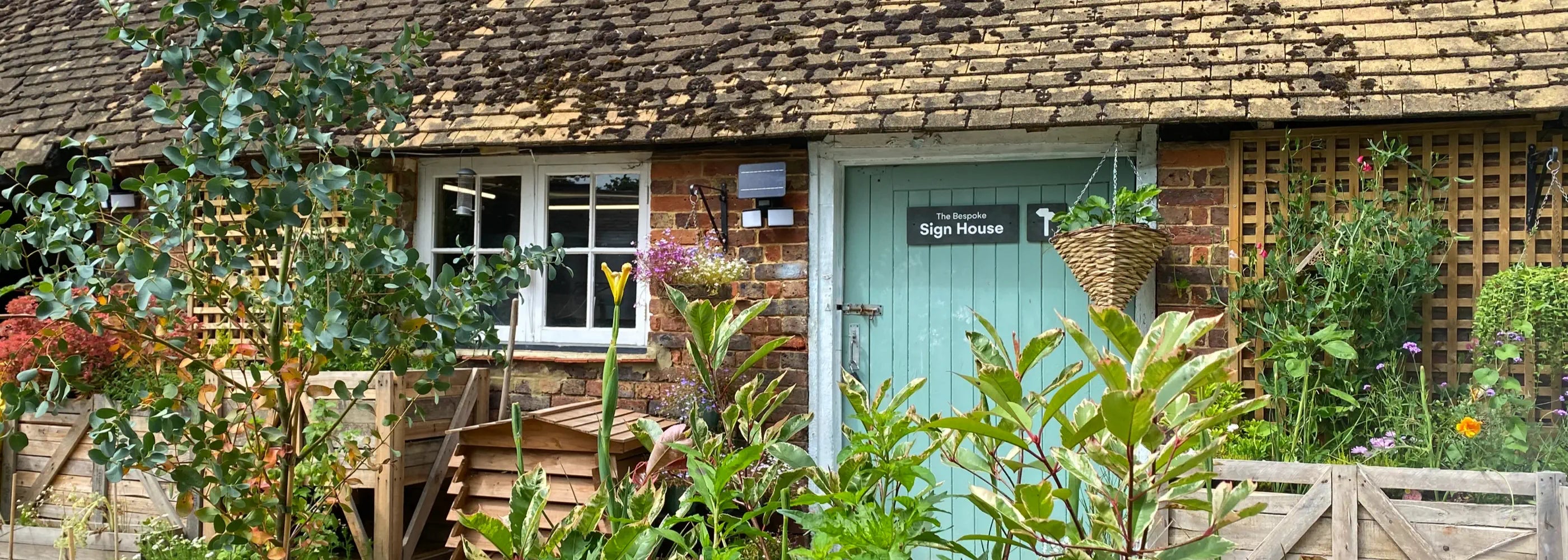Introduction
For many British homeowners, the number on a front door carries more meaning than ever before. As interest in personalised living, symbolism and energy awareness grows, the conversation around house numbers is shifting from superstition to significance.
Whether it’s the lucky number 7, the often-avoided number 13, or the empowering master numbers of numerology, house numbers may influence perceptions in ways that may affect property value, appeal or desirability overall.
This guide explores house numerology, where numerology and superstition within the UK property market intersect. Drawing on expert insights and valuation trends, we unpack how numbers shape buying decisions, emotional response and market perception.
At a Glance
How Brits Feel About House Numbers (TBSH Survey, n= 1,000)
- 46% say an “unlucky” number might put them off buying; 21% say it definitely would.
- 21% have rejected a home due to “bad vibes” or an unwelcoming feel.
- Half (50%) of respondents said they could be influenced by a property’s number or name, whether positively or negatively.
- 27% have instantly ruled out a property based on the exterior; a further 31% say it influenced their decision.
- Belfast: highest “definitely avoid unlucky number” at 50%.
- London: most likely to report “bad vibes” as a turn-off (33%).
- Norwich is the least superstitious: just 3% definitely put off, 72% not superstitious.
Source: The Bespoke Sign House, UK nationally representative survey, 2025.
Number Insights and Valuation Trends
...is 13. Homes with this number, on average, sell for £5,333 less than other numbered homes on average in the UK ~ Rightmove
Odd-numbered homes sell for slightly more on average than even-numbered homes ~ Yopa, Property Reporter
Developers and councils building new homes commonly avoid using the number 13 due to superstitious avoidance ~ Yopa, Property Reporter
For non-superstitious buyers, properties numbered 13 may present a chance to secure a home at a reduced price ~ Rightmove
...in British culture is the number 7. It is traditionally seen as a ‘lucky’ number ~ British Numbers
...is on a Friday the 13th. Buyers are most likely to avoid completing on this day making it the quietest day for completions ~ Rightmove
House number 1 properties sell for 8% above average, with number 2 homes close behind at 5% above ~ Property Rescue
House number 4 is often associated with bad luck in Feng Shui, as it sounds like the word for 'death' in Mandarin and Cantonese ~ Feng Shui Web Guide
...choose a home with an even number. According to numerology, even numbers represent stability and harmony, qualities many people seek for a peaceful home environment ~ Sukavani
Displaying house numbers in specific ways, such as within an oval sign, is a common Feng Shui practice to neutralise negative energies associated with certain numbers ~ Feng Shui Manhattan
Meet the Experts

Kristian Goodenough
Founder of The Bespoke Sign House
As co-founder of The Bespoke Sign House, Kristian brings a unique perspective to the intersection of property, design, and buyer psychology. Since launching the business, he has overseen the growth of one of the UK’s leading providers of handcrafted house number and name signs. This has given him valuable insight into emerging trends in buyer preferences and demand when it comes to numbers.

Jane Alton
Numerologist
Jane Alton is an internationally respected consultant numerologist with over 20 years of experience. Jane works with both personal and business clients to help them gain clarity and vision, for life and business, helping them understand and navigate how number energies can influence everything from life choices to business decisions and home environments. Jane teaches Foundation, Diploma and Master Classes in Numerology, as well as Esoteric Tarot on behalf of The Connaissance School of Numerology. Her approach is known for being clear, practical, and easy to apply to everyday life.

Robin Edwards
Real Estate
Robin Edwards is the founder of Curetons Property Finders, a London-based buying agency specialising in prime and super prime residential property. With over 20 years’ experience, Robin has advised on more than £1bn of residential transactions and regularly works with high-net-worth and international clients. Recently described by The Sun as “property advisor to the rich and famous”, Robin offers a global perspective on buyer trends.

Inbaal Honigman
Feng Shui Expert
Inbaal Honigman is a widely recognised psychic and Feng Shui specialist with over 25 years of experience advising on energy alignment in the home. Her work blends traditional esoteric practices including Tarot, astrology, palmistry, and numerology. With her practical expertise in Feng Shui techniques, Inbaal helps create balanced, harmonious living environments offering expert tips on everything from bedroom energy flow to garden layout.
What Is House Numerology? Numerology Explained
Why Numbers Matter in Numerology
In numerology, each number from 1 to 9 and the ‘master numbers’ 11, 22, and 33 all carry their own unique energy. These numbers are believed to influence how we experience everything from personal growth and relationships to the energy of a space.
Whether it’s the number that appears in a birth date or above a front door, its meaning stays the same. What changes is how that energy shows up in context. For example, in a home, it might influence the atmosphere while in a birth chart, it could reflect a personality trait.
Add up the digits of your address until you reach a single number (unless it’s a “master number” like 11 or 22). For example:
42 → 4 + 2 = 6 → This is a 6 house. You calculate the main building number first, then add any unit number or letter.
Example:
36B → 3 + 6 = 9 → plus 'B' = 2 → 9 + 2 = 11 → Master Number 11 house
(Letters are converted to numbers based on this system: A=1, B=2, C=3, etc.)

Does Your House Only Have a Name?
If your building doesn’t have a number but has a name, you can calculate a house number by using the grid system.
- Take the entire house name and add up the corresponding numbers for each letter.
- For example, let’s use the name ROEHOLME: R (9) + O (6) + E (5) + H (8) + O (6) + L (3) + M (4) + E (5) = 46
- Next, add together the digits of the total: 4 + 6 = 10 → 1 + 0 = 1
So, the house name ROEHOLME corresponds to house number 1 in numerology.
What the Numbers Mean According to Experts
In numerology, numbers are more than just digits. They carry distinct energies that can influence how we experience spaces. When it comes to alignment with homes, numerologists believe that each house number creates a certain atmosphere that may impact how comfortable, supported, or successful a person feels living there. Here we explore what each number typically represents, how it translates to a home environment and how this may influence buyer psychology.
Independence and leadership
Drive, ambition, self-starters
"1 is a masculine, focused energy. Buyers drawn to this are often people who like to be in charge of their space, especially in uncertain times"
Harmony and partnership
Balance, cooperation, empathy
"2 is the diplomat, peacemaker. Ideal for couples or anyone seeking a calm, cooperative home."
Creativity and expression
Joy, communication, self-expression
"Creative types or social households often love a 3 house. But too much 3 energy can feel scattered if not balanced."
Stability and practicality
Structure, order, hard work
"4 offers security and structure but can feel ‘boxed in’ to buyers at life stages craving freedom. It’s great for those seeking grounding."
Change and freedom
Adventure, flexibility, energy
"5 houses attract buyers who love movement, variety and travel. They tend to have more turnover and are great rental properties."
Nurturing and responsibility
Family, compassion, emotional support
“6 is the ultimate harmonious home. Ideal for young couples and families.”
Reflection and spirituality
Wisdom, solitude, introspection
"7 energy needs quiet. Buyers drawn here often want space, peace, or a spiritual home."
Ambition and success
Wealth, confidence, achievement
“8 is strongly associated with success in the material realm. In today’s world, many buyers want to feel in charge of their space amid the chaos.”
Completion and compassion
Generosity, service, emotional depth
“9 is ideal for older buyers or those downsizing. It’s about letting go, moving forward with wisdom."
Intuition and enlightenment
Vision, spiritual growth, creativity
"11 is highly sensitive energy. Buyers may be drawn to it without knowing why, but it requires a home that allows reflection and connection to spirit."
Legacy and leadership
Building big ideas, transformation
"Master builder - ideal for visionaries or entrepreneurs who want to create lasting impact."
Service and wisdom
Teaching, healing, deep emotional intelligence
In numerology, 33 generally aligns with healing and service energy.
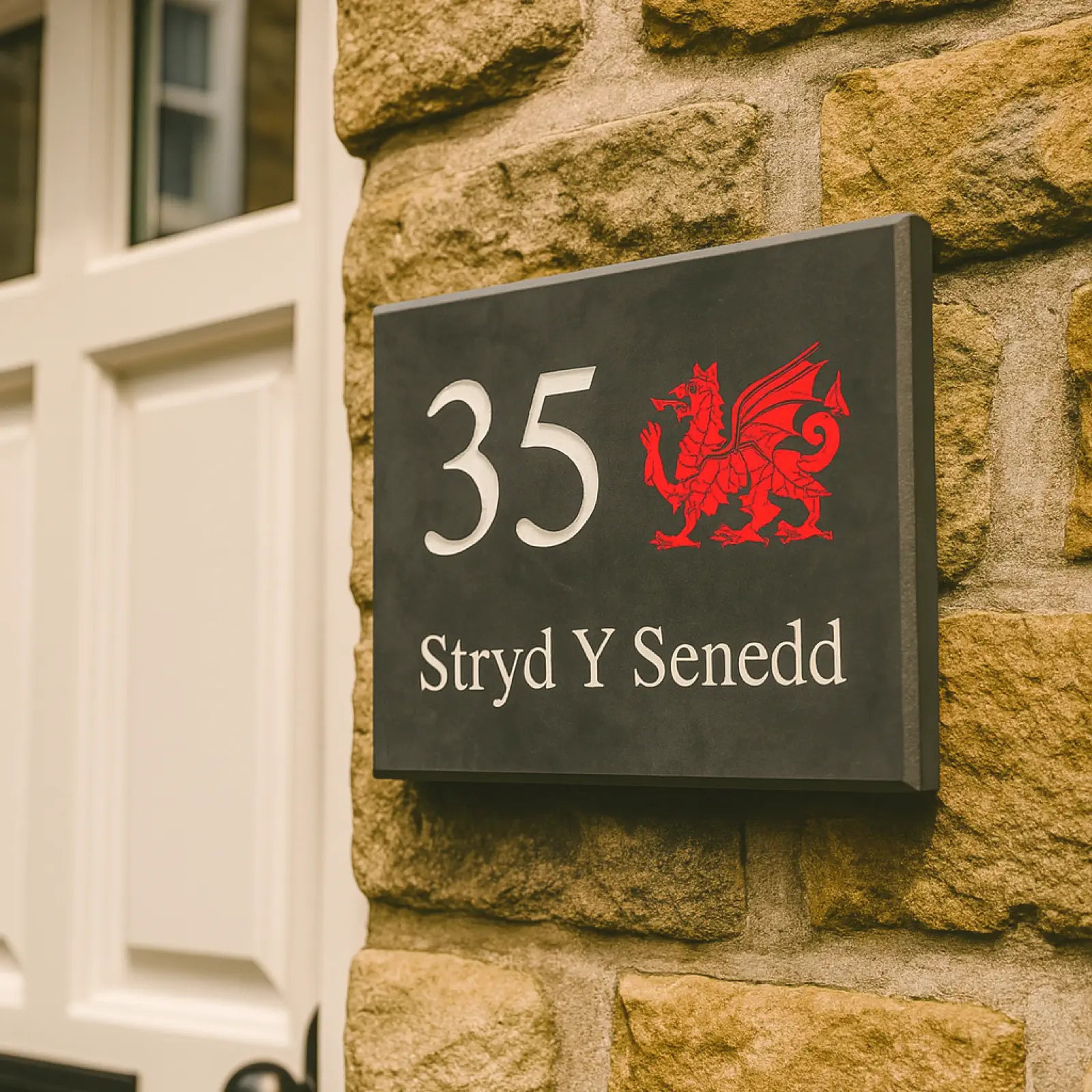
Changing or Enhancing Your House Number Energy
In our survey, 21% said “bad vibes” or an unwelcoming feel affected their buying decision.
Some homeowners use the method of ‘patching’ - subtly adding numerological energy to their homes without changing the legal address.
According to numerologist Jane Alton:
“If the house number feels out of sync, you can give your home a name that is compatible with your personal numbers. That will add a new dimension and help balance the energy.”
In broader numerology and energy design practices, other common methods may include:
- Using specific colours in the front door or entryway to align with desired energy
- Displaying decorative symbols (such as mirrors, crystals) to offset heavier vibrations
Interior Styling by Numerology
While numerology gives us the energetic blueprint of a house number, Feng Shui offers practical tools to work with that energy through styling, symbolism, and layout.
Feng Shui expert Inbaal Honigman explains how your home’s number can guide choices in colour, décor, and even the front entrance:
"No number can be better or worse than another, but sometimes it’s a good idea to influence a house number which doesn’t feel aligned with your personality or family dynamic. Feng Shui helps bring balance. For example, by softening the energy of a very businesslike house, or amplifying prosperity in a more nurturing home."
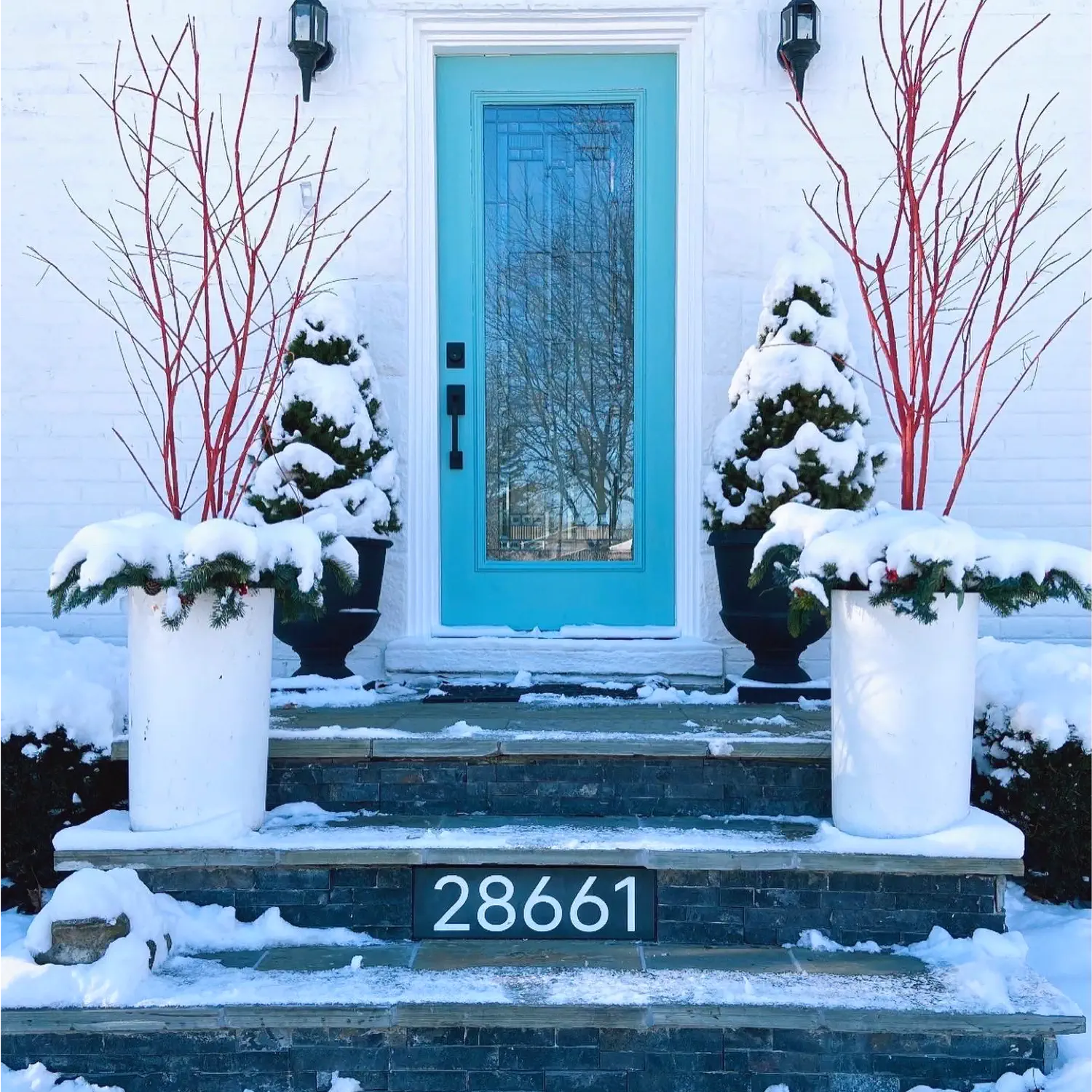
The Power of the Front Door
The entrance is key in both numerology and Feng Shui. As Inbaal puts it:
“The front door is the shield between the outside world and your inner kingdom. It bears the responsibility of the house number and sets the tone for the energy inside.”
Her advice? Introduce a balancing symbol as the first thing you see when you step inside:
“Introduce a balancing symbol as the first thing you see when you enter your home. Some favourite powerful icons include the Dragon, Phoenix or Yin Yang symbol or, calming colours like green, blue, yellow or purple. This way, you invite harmony to be the first type of energy to greet you when you shut the door behind you”
These insights show how numerology and Feng Shui can be used practically to style and balance a space in line with the energy of your house number.
Colour and Styling Tips for Challenging Numbers
If your house number feels "off" or energetically intense, small styling choices can help adjust the atmosphere. Inbaal suggests:
"When a number feels too emotional, colours like gold, green and orange can encourage prosperity, along with symbols like coins, bamboo, and fish sculptures . If it feels too material or businesslike, go for pinks and reds, and then pair those colours with figurines like cranes or mandarin ducks. These combinations invite love and emotional connection. Don’t try to cancel your house number’s energy entirely. There’s every chance that this number was placed in your path because you need it, not just because you want it."
Does Numerology Actually Have Impact on the Property Market and Value of Your Home?
Beyond practical factors like plot position or layout, there are also deeper cultural and psychological reasons why certain house numbers consistently perform better. In some communities, number symbolism has long influenced buying behaviour and now, with growing public interest in wellbeing, energy awareness, and personal alignment, these subtle preferences are starting to shape UK property trends too.
In our latest survey around buyer behaviours, half (50%) of respondents said they could be influenced by a property’s number or name, whether positively or negatively.
The Most Popular House Numbers in the UK
Recent research from Barrows and Forrester analysed house sales across England and Wales over the last 12 months (excluding flats and non-standard properties), and found the most popular house number based on the sheer number of transactions, was number 2 with 15,014 sales. Just behind it was number 1, with 15,000 sales.
Numbers 3 through 10 complete the top ten in straightforward numerical order.
This trend held steady across various property types:
- Number 1 was most popular among detached homes.
- Number 2 led the way for semi-detached houses.
- Number 3 topped the list for terraced properties.
These results make sense on a practical level. Lower numbers tend to be more common and often appear on corner plots or end-of-terrace homes that typically offer more space and privacy. According to Barrows and Forrester’s Managing Director, James Forrester, this can directly affect value.
“Low numbers such as 1 and 2 are often found on corner plots, or at the end of a terrace, thus gaining a larger footprint, more outdoor space, more privacy, and, therefore, a higher value.”
The Most Valuable House Numbers
When it comes to value, results are more surprising. The most valuable house number overall was 197, with an average selling price of £325,000. Close behind were:
- Number 1 – £320,000
- Number 150 – £320,000
- Number 2 – £315,000
- Number 102 – £315,000
For specific property types:
- Detached homes: 110 (£490,000)
- Semi-detached homes: 136 (£315,000)
- Terraced homes: 154 (£277,000)
It’s clear that certain numbers may come with added desirability whether due to plot advantages or cultural preferences.
Numerology and Buyer Psychology: What the Experts Say
While practical factors clearly play a role, our experts believe that deeper psychological and energetic patterns may also influence why certain house numbers sell faster or command higher prices. Subtle number preferences shaped by personal beliefs, cultural background, or even unconscious attraction, can affect how buyers feel about a property.
The Top Selling Numbers
- Robin Edwards (Property Buying Expert): “We’ve definitely seen buyers lean toward numbers like 1 and 2. There’s a perception that number 1 is the best, which is why you see developments branded ‘One Hyde Park’ or ‘One Mayfair.’ It’s simple psychology: number 1 feels exclusive.”
- Jane Alton (Numerologist): “Subconsciously, buyers may feel more drawn to certain number energies. For example, the number 8 is associated with success and achievement in a chaotic world. Many people want to feel 'in charge' and ‘in control’ in their home space especially in uncertain times. Similarly, 1 is linked to leadership, new beginnings and a masculine focused energy.”
- Kristian Goodenough (Founder of The Bespoke Sign House): "At The Bespoke Sign House, we’ve seen clear patterns in number choices. Odd numbers account for over half of our orders, with number 1 consistently the most popular - followed by 2, 4, 3 and 8. While number 7 remains a lucky favourite, number 13 stands out as the least ordered number between 1 and 20, with sales significantly lower than its neighbours. It’s clear that for many homeowners, house numbers are more than just practical - they’re personal."
- Jane Alton (Numerologist):
On the number 8: “The number 8 is linked to success in the material world. It’s the manager, the builder, the achiever. In times of uncertainty, many people crave that sense of stability and achievement at home.”
On the number 1: “While 1 is leadership and drive, 2 brings harmony and diplomacy. Together they create a balanced dynamic, which may subconsciously appeal to buyers seeking a supportive home environment.”
On the number 3: If you look at the three, you've got lots of light coming in. You've got the trinity - masculine, feminine, creativity all working together. The number three is very creative and its energy is fluffy and happy.
For home buyers, this energy could represent a bright, creative, and harmonious living space that fosters positive feelings and new possibilities. This may explain its popularity as a top-selling number.
Cultural Preferences and Emotional Pull
Numbers are not emotionally neutral. In many cultures, specific digits carry strong connotations:
- 4 is avoided in Chinese communities because it sounds like “death” in Mandarin and Cantonese.
- 8 is considered extremely lucky, associated with prosperity and success.

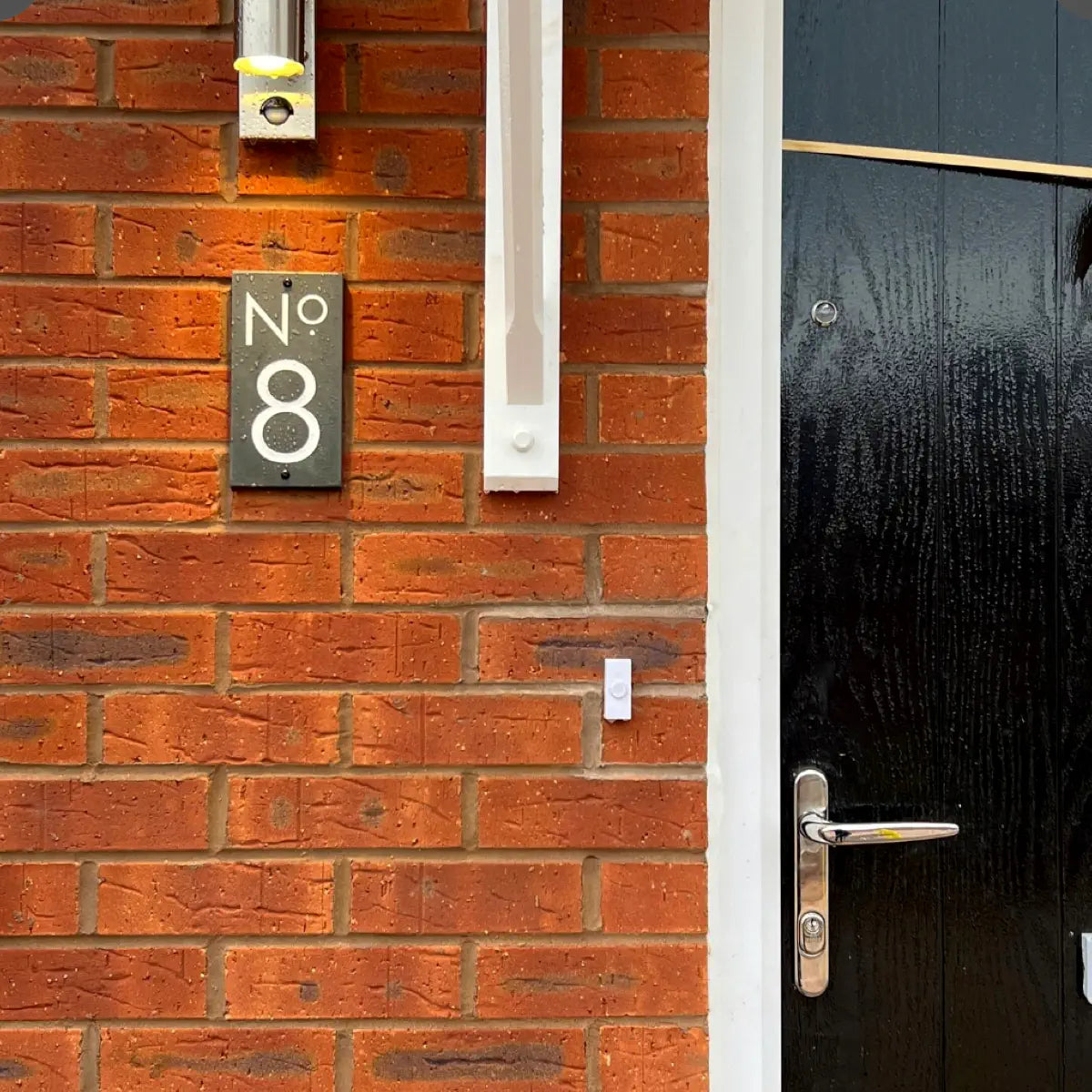

What Our Experts Say On the Number 4
- Robin Edwards (Real Estate):
“I work with a lot of Chinese clients and for them, 4 is very unlucky because it sounds like the word ‘death’. Developers in the Far East won’t include 4 in their numbering or even have/name a 4th floor ..at all! It definitely affects buying decisions for international buyers here in the UK too.”
What Our Experts Say On the Number 8
- Jane Alton (Numerologist):
“8 houses are highly appealing to those focused on success and financial growth, but the intensity may not suit those seeking a quiet life”
What Our Experts Say On the Number 4
- Jane Alton (Numerologist):
“With the four, we talk about harmony through conflict. Even though 4 is a solid grounded number, people can literally feel boxed in with a lot of ‘4’ energy. Four emphasises endurance so you can feel stuck. It’s great for creating stability but if someone is looking for freedom or lightness, it can feel too heavy or restrictive.”
The Case of Number 13
When it comes to house numbers, few are as charged with cultural meaning or market consequence as the number 13.
The longstanding superstition surrounding 13 continues to influence both buyer behaviour and development decisions across the UK. Many new-build developments avoid the number altogether, substituting it with “12A” or skipping directly to 14, a practice confirmed by multiple sources, including Stone Real Estate and Property Reporter.
Property Buying Expert Robin Edwards confirms:
“A lot of new developments will not include a number 13. That's not unusual at all. Even non-superstitious buyers tend to joke about it or feel uneasy. You’ll often see developments or hotels skip straight from 12 to 14. I’d say people are probably more superstitious about it now than they were in the past.
He continues:
“I do think it affects buyer behaviour. It can be enough to put someone off and if I was selling a house that was number 13, I’d definitely consider changing it to something like 12A. Properties with that number can take longer to find a buyer or go under offer. Even if someone ultimately goes ahead, there’s often hesitation. It just adds another complication.
This isn’t just anecdotal. According to research by Stone Real Estate and reported by Ideal Home, homes numbered 13 have historically underperformed:
- In 2019, number 13 homes sold for 8% less than comparable properties - an average discount of £21,908.
- In 2024, homes numbered 13 in England and Wales sold for an average of £260,000, which is 12.2% less than the wider market average. This equates to a drop of £36,203 for the average seller
- For new builds, number 13 homes sold for 2% less than others.
- The number was so unpopular that it appeared in just 1.1% of property sales and 0.8% of new builds at the time.
While it's easy for this to appear as simple superstition, the question of why some numbers holds such sway, and whether their influence remains open.
So, is this simply about cultural superstition? Or is there something deeper at work?
Here's what the public said about #13 in our poll.
In our poll, the public echoed this caution:
- 21% would definitely avoid a home with an “unlucky” number.
- A further 25% would only consider it at the right price.
- Regionally, sentiment isn’t uniform: Belfast was the most superstitious (50% “definitely avoid”), while Liverpool was among the least (12%).
These attitudes map closely to the pricing and absorption patterns reported by property portals.

Understanding the Number 13 Through Numerology
From a numerological perspective, Jane explains why the energy of 13 can feel heavier for some buyers:
"With the number 13, you've got the 1 which represents that unstoppable drive, and then the 3, which is all about creativity and ideas. Together, they add up to 4 which is about structure and stability. It's really about using your creativity to transform things and build something solid."
Jane adds that buyers may instinctively pick up on this energy: "Subconsciously, people may sense that a 13 carries quite intense energy. For some, it can bring up a sense of having to work harder or that things won't flow quite as easily."
Turning It Into a Positive
Jane encourages buyers to view 13 as a number of potential transformation:"Sometimes what feels challenging is exactly the energy you need to grow. There's great creative energy within the 13. When you push through, it can bring transformation, stability, and a new beginning."
Applying Numerology at Home: Practical Tips from the Experts
Whether you’re buying, selling, or simply wanting to feel more in tune with your space, there are simple ways to work with your home's energy. Here, our experts leave you with practical tips to help you align, enhance, or balance the numerology and energy of your living environment.

Jane Alton, Numerologist
1. If your house number feels ‘out of sync’, you can balance it
"You can give your home a name that is compatible with your personal numbers if the existing number feels out of sync"

Jane Alton, Numerologist
2. Don’t fear numbers like 4 or 13. They can offer growth
"Look at your core numbers. The potential for security and stability that the 4 can bring, or the potential for transformation and rebirth in a 13, may be exactly what you need in your life"

Jane Alton, Numerologist
3. Trust your instinctive response when viewing homes
“When a potential buyer walks into a house with a number or name whose vibration is compatible with their own, they may immediately feel like 'coming home."

Jane Alton, Numerologist
4. Understand your home’s core number energy
“Think of your house number like a personality. When you understand its energy, you can work with it."

Inbaal Honigman, Feng Shui Expert
5. Use Feng Shui to shift stuck energy.
"Feng Shui can be used to balance or enhance a house number that doesn’t feel aligned. This can be done through colour, décor or symbolic items."

Inbaal Honigman, Feng Shui Expert
6. The front door is everything
"In Feng Shui, everything starts with the front door. It’s not just where energy enters the home, it’s the threshold between the outside world and your inner sanctuary. If your door number feels out of sync, a simple colour change or symbolic detail can help shift the atmosphere."

Inbaal Honigman, Feng Shui Expert
7. Buyers notice small symbolic shifts.
"I once advised sellers to rename their home from ‘The Hole’ to ‘Home Farm’ and it changed the whole vibe and made a big difference to the sale."
Conclusion
From market trends to personal stories, it’s clear that house numbers can hold more influence than we might expect. Whether through cultural associations, buyer psychology, or numerological energy, there’s no denying that a home's number holds significance.
For developers and estate agents, understanding these patterns can offer a competitive edge when marketing homes to an increasingly conscious audience.
For homeowners and buyers, numerology adds another layer of personal meaning. It can help you choose, style or simply understand your space in a way that feels more aligned with who you are and where you want to go in life.
As the experts in this guide suggest, whether you're buying your first home, renovating, or selling, it’s worth tuning into the subtle energy of your house number. You may just find it brings unexpected insight and perhaps a touch of magic to your home.
Rightmove
Yopa
Property Reporter
British Numbers
Property Rescue
The Bespoke Sign House
Curetons Property Finders
Feng Shui Web Guide
Sukavani
Feng Shu Manhattan
Stone Real Estate
Barrows and Forrester
JaneAlton.com



